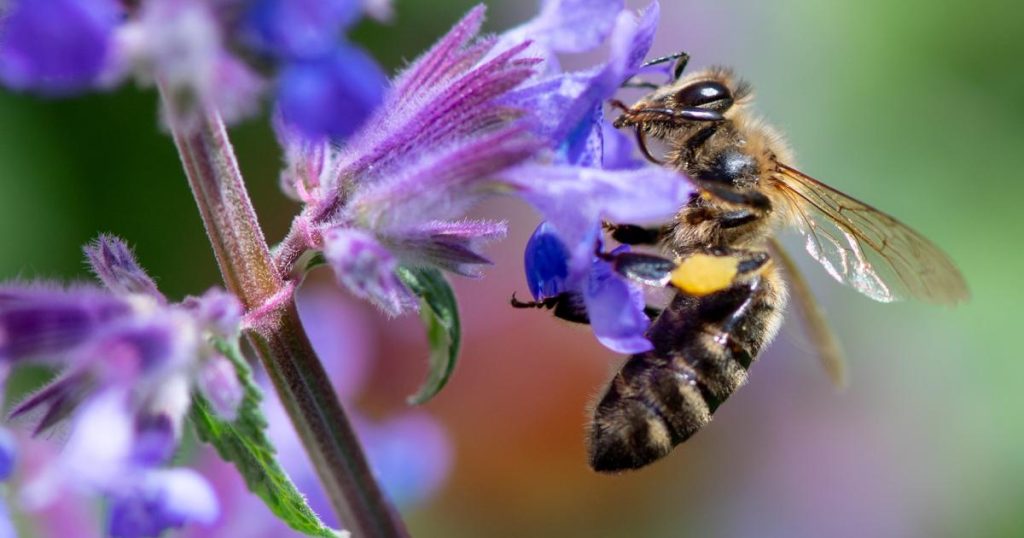Hiking is good for the soul and health. In addition, it broadens the horizon. Hikers can now embark on guided tours and follow the sweet trails of wild bees. Whether it is trips to Romania, Montenegro or Madeira – tour operator Roam around the world It has special offers to take interested people to great natural sites and impart knowledge about insects.
The United Nations declares May 20 as World Bee Day
The importance of bees as pollinators of biodiversity and their key role in food security is fundamental to humanity. with the World Bee Day The United Nations also emphasizes awareness of the decline in the number of bees in the world and the urgent need to protect these insects. About 80 percent of flowering plants depend on pollination by bees and the like. While the critically endangered wild bees consume nectar immediately, honey bees collect both pollen and nectar and use them to produce honey.
Roam around the world Now take World Bee Day on May 20th an opportunity to introduce the buzzing destinations:
Flower Island attracts nectar collectors
employment Madeira The temperate climate allows flowers and plants to thrive in luxury and the Atlantic island has earned the nickname ‘Island of Flowers’. Not only are friends of flora and fauna drawn to the Portuguese Atlantic island, Madeira is also a popular travel destination for hikers. Diverse tours lead along the levada and the coast.
“Quinta dos Artistas’ lush gardens are home to around 700,000 honey bees. We pay attention to natural management and don’t use any sprays,” confirms host Gerald. Madeira honey features a mix of flowers, shrubs, fruits and vegetables – from Quinta’s large garden. Quinta dos Artistas is a sustainable display project in Madeira and is the only company on the island to bear the Green Key seal of approval for sustainable management and environmental awareness.
Tasting honey in Transylvania
Romania It is a versatile hiking destination with small medieval towns and untouched landscapes – be it in Transylvania or the Southern Carpathians. Engelbert’s guide accompanies tourists hiking through Cernatal and Retezat National Parks, where there is a farm with 16 bee colonies to visit on various day tours. “I myself harvested 140kg of honey last year. Beekeeping is my passion, I am still learning a lot about bees and I am happy to share my experience with my guests,” Engelbert said.
Lion bees buzz in Transylvania. The host family is one of the pioneers of ecotourism in Romania. They recognized the importance of regional farming early on and incorporated it into the sustainable concept of their Hermani Retirement Villa. Hikers are welcome and honey tasting included. They thrive and thrive everywhere – Piatra Craiului National Park is an ideal area to feel good about pollinators.
Many types of wild bees in the mountains
rich in species Bulgarian The mountains offer crystal clear mountain lakes and mountain views of the Rhodope Mountains. Orchids and wild bees of all kinds can be found in the flowering meadows, and hiking trails lead through small villages and monasteries.
Insects in the vineyard and vegetable garden
Travelers experience a lot of animals and plants the black Mountain; For example in the Skadarsee National Park, where 270 species of birds roam. Pelicans, herons, and eagles live alongside wild bees and other animals. The national park is also the home of hostess Angelica, who runs a winery with her family in the middle of this wonderful natural setting. Honeybees are buzzing all over the vineyard. Guests are invited to table and wine and regional dishes are served.
Nearly 700 species of wild bees are native to Austria
If you don’t feel like traveling that far, you can also spot wild bees on your doorstep. Approximately 700 species are indigenous between Lake Constance and Lake Neusiedl.

“Food practitioner. Bacon guru. Infuriatingly humble zombie enthusiast. Total student.”








More Stories
Kyiv: Russian Kursk offensive halted
US Presidential Election: Former US Government Officials Warn Against Donald Trump's Election
Netherlands wants to leave asylum system